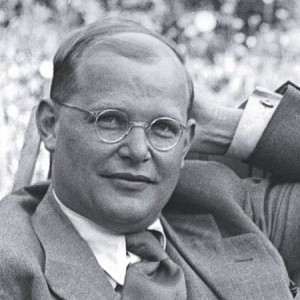 The name, Dietrich Bonhoeffer (1906-1945), has become a byword for conviction and courage. In 1935, ten years before the Nazis hanged him in Flossenburg, Bonhoeffer presided over a seminary consisting of twenty-five young pastors. They were all part of the Confessing Church, believers who refused to drape Hitler’s policies with the Christian flag. Therefore, the seminary was illegal; they literally risked their lives to pray together, study together, and live together. In 1937 the Nazis shut down this clandestine seminary, and a year later Bonhoeffer wrote Life Together, reflections on a Christian community. In the pages of this book, he taught that courage is not only standing up against the unbelieving world; it includes standing up against one’s own sin in the context of the local church.
The name, Dietrich Bonhoeffer (1906-1945), has become a byword for conviction and courage. In 1935, ten years before the Nazis hanged him in Flossenburg, Bonhoeffer presided over a seminary consisting of twenty-five young pastors. They were all part of the Confessing Church, believers who refused to drape Hitler’s policies with the Christian flag. Therefore, the seminary was illegal; they literally risked their lives to pray together, study together, and live together. In 1937 the Nazis shut down this clandestine seminary, and a year later Bonhoeffer wrote Life Together, reflections on a Christian community. In the pages of this book, he taught that courage is not only standing up against the unbelieving world; it includes standing up against one’s own sin in the context of the local church.
The Church had many enemies in Bonhoeffer’s day. Even before Hitler used religious language to promote his goals, modernism replaced the cross with “progress.” Commenting upon his time at Union Theological Seminary in New York City, Bonhoeffer wrote, “I never heard of the Gospel of Jesus Christ . . . of the cross, of sin and forgiveness, of death and life (while) in New York . . . only an ethical and social idealism which pins its faith to progress.”1 In Germany, the success of social idealism and Nazi nationalism meant the Church risked forgetting what God calls her to be: a community of faith subject to the Word of God. In order to fulfill this mission, Bonhoeffer encouraged believers to regularly confess their sins to one another (James 5:16).
Why is this so important? Because, according to Bonhoeffer, a congregation without mutual confession of sin is a church afraid to be sinners: “The pious fellowship permits no one to be a sinner. So everybody must conceal his sin from himself and from the fellowship.”2 Bonhoeffer lamented this state of being. What an awful paradox: saved by the work of Christ alone and yet unwilling to let one’s sin be known. Why the silence? “Confession in the presence of a brother is the profoundest kind of humiliation. It hurts, it cuts a man down, it is a dreadful blow to pride. To stand there before a brother as a sinner is an ignominy that is almost unbearable.”3 And yet the shame must be born in order to follow Christ: “The Cross of Jesus Christ destroys all pride. We cannot find the Cross of Jesus if we shrink from going to the place where it is to be found, namely, the public death of the sinner. And we refuse to bear the Cross when we are ashamed to take upon ourselves the shameful death of the sinner in confession.”4
Is godward confession insufficient? Must a third party be brought into the mix? Bonhoeffer warned his readers that those ready to be honest with God while refusing to be vocal with their brother may be living in hypocrisy:
[W]e must ask ourselves whether we have not often been deceiving ourselves with confession of sin to God, whether we have not rather been confessing our sins to ourselves and also granting ourselves absolution. And is not the reason perhaps for our countless relapses and the feebleness of our Christian obedience to be found precisely in the fact that we are living on self-forgiveness and not real forgiveness.5
Yes, there is room for prudence in public confession. Done wrong, it can pointlessly titillate or humiliate others, including friends and loved ones. Sometimes it amounts to confessing the sins of others: “I repent of harboring ill feelings toward this brother who has wronged me.” But the dangers should only lead believers to exercise care in such confession—not to shun it.
In light of Bonhoeffer’s willingness to die for the faith, the call to mutual confession may seem minor, even trite. Not to him. He knew that dictators rise and fall. Persecution comes and goes. But the Church endures, and, until Christ returns, she is full of sinners. The courageous sinner, redeemed by the blood of Christ, will fight his sin by being honest about it, confessing it both to God and a brother or sister. Such courage may not make the history books, but it will mark those written in the Lamb’s Book of Life (Rev. 21:27).
——————————————
1 Quoted by James and Marti Hefley, By Their Blood: Christian Martyrs of the Twentieth Century (Grand Rapids, MI: Baker Books, 1996), 203.
2 Dietrich Bonhoeffer, Life Together (New York: Harper & Row Publishers, 1954), 110.
3 Ibid., 114.
4 Ibid.
5 Ibid., 115-116.
Pingback: Confessing Courage – Dietrich Bonhoeffer (1906-1945) « bonhoefferblog